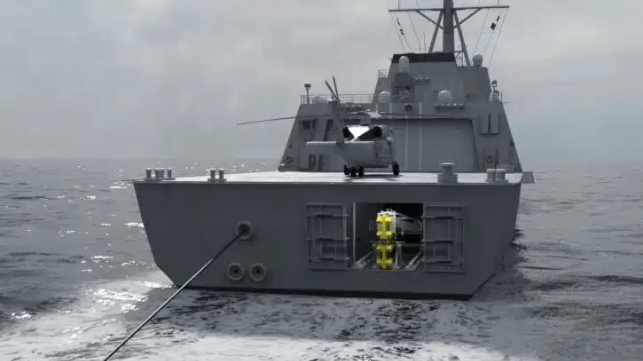Senate NDAA Bans Allied Manufacturing Base From U.S. Navy Shipbuilding

The U.S. Senate has added an amendment to a must-pass defense appropriations bill which would ban foreign-made components from U.S. Navy shipbuilding by 2033 - even if the foreign manufacturers are in allied nations with longstanding defense technology ties.
Made-in-America requirements are common for defense contracting, and foreign defense manufacturers often license their technology to American partners or set up their own American factories to localize production. However, the amendment to the NDAA goes further. The text would:
- Gradually increase domestic source content for shipbuilding programs to 100 percent within the next ten years;
- Require all Navy shipbuilding R&D contracts to account for a 100 percent domestic content requirement in order to be considered compliant with “Made in America” policies;
- Require annual reports on country of origin tracking for Navy shipbuilding programs;
- Allow the Navy to request waivers from the Made in America Office for specific exceptions, like absence of a domestic product.
“Wisconsin has a proud tradition of shipbuilding, producing world-class products made by American workers that defend our freedom at home and abroad,” said Senator Baldwin. “By strengthening Buy America requirements for our shipbuilding industry, we can ensure that taxpayer dollars are not only going toward keeping us safe, but also supporting American jobs, growing our economy, and maintaining a defense industrial base that is critical to our national security.”
The provision would appear to prohibit content from allied-nation suppliers with a long history of sales to the U.S. Navy. Some of this content is high-profile, like the Norwegian-built Naval Strike Missile or the French-made CAPTAS-4 towed sonar array. Since the amendment would be subject to interpretation, and there is a procedure for obtaining a waiver, the impact on any specific program is unknown.
Planned tri-lateral acquisition for the U.S.-UK-Australia submarine program (AUKUS) could be impacted as well. The amendment would appear to prohibit some Australian- or British-manufactured items from new U.S. Navy sub hulls, despite plans for supply-chain integration and technology sharing.
In addition, skeptics warn that America's allies could retaliate and impose restrictions on U.S. defense exports, cutting into military cooperation and integration.
However, Sen. Baldwin's amendment has a broad exception: it allows naval shipbuilders to incorporate any foreign-made item made "wholly or predominantly" of steel, iron, or steel and iron. Subject to interpretation, "predominantly" steel and iron items could include foreign deck machinery or diesel engines. "Wholly" steel and iron items could include foreign shaftlines, preformed steel plate, precut scantlings or castings.

that matters most
Get the latest maritime news delivered to your inbox daily.
For new American-made merchant ships to pass muster for Jones Act trade, these rules are reversed: foreign-worked iron and steel hull components are nearly banned, while all foreign equipment is allowed.
The FY2024 Senate NDAA passed Thursday, including the amendment. The House version passed on July 14. The two versions still have to be reconciled in conference and then signed into law by the president.
